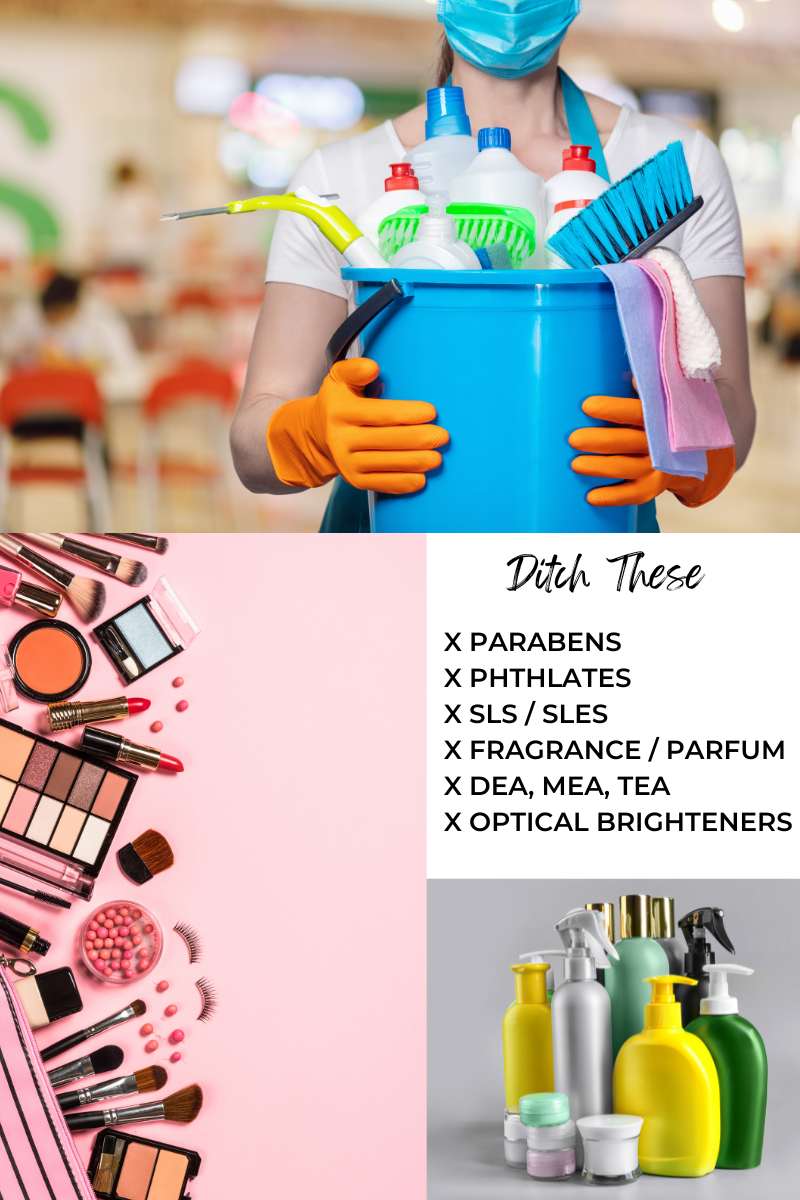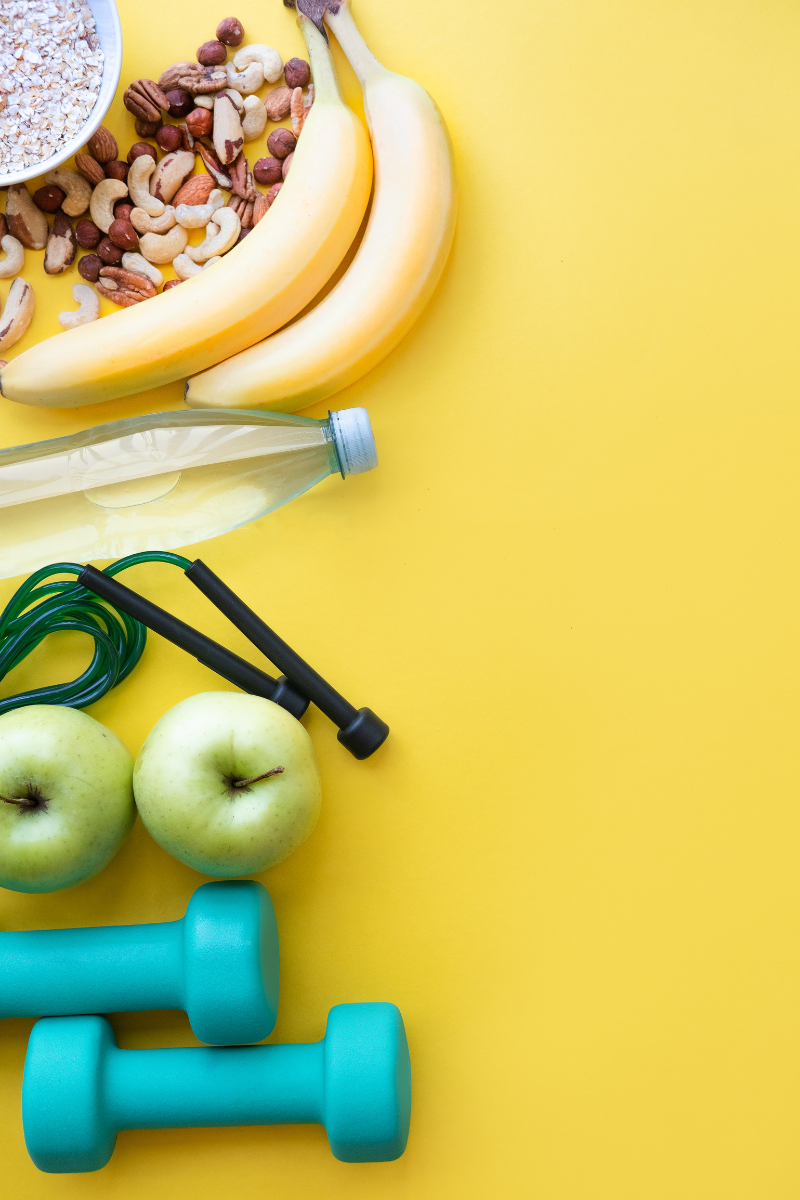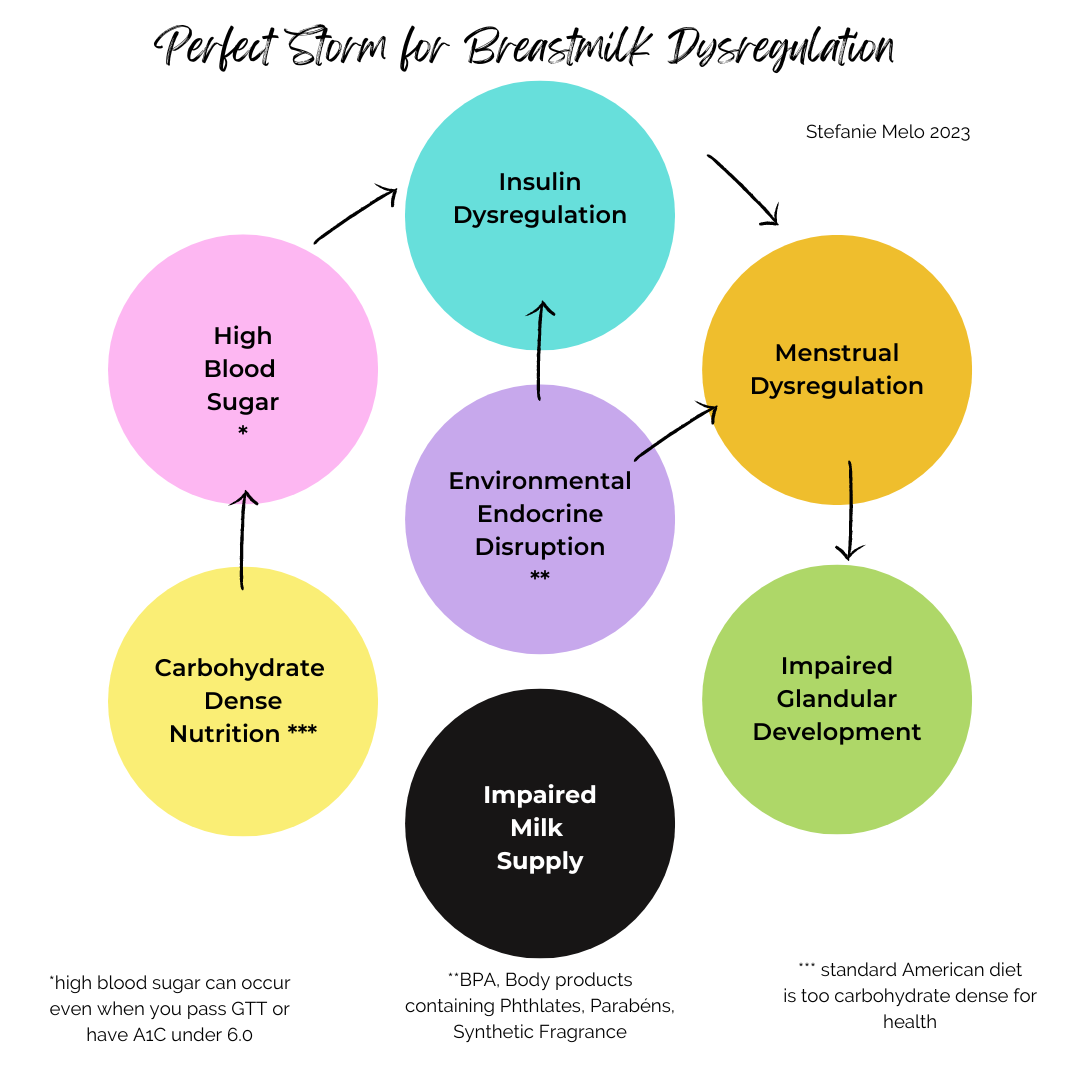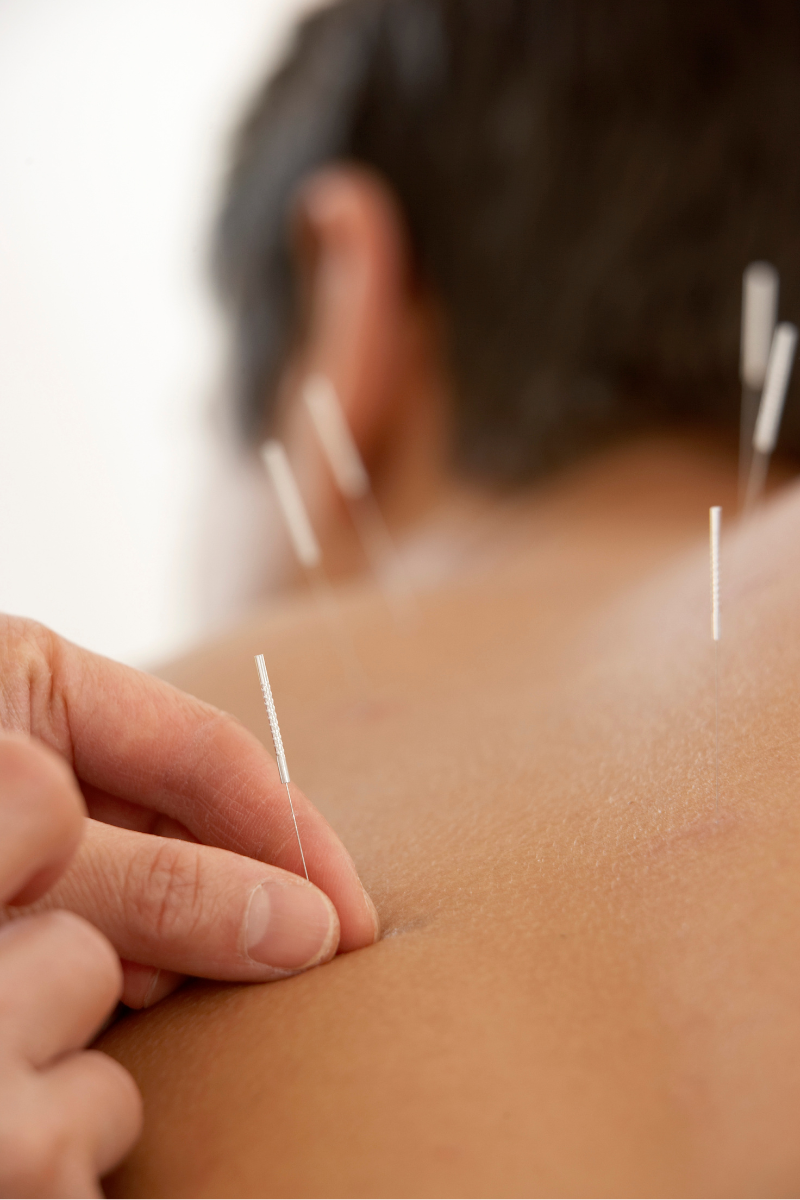
Poly Cystic Ovary Syndrome (PCOS) is a collection of signs and symptoms caused by incorrectly functioning hormones. Symptoms typically present as
- Lack of menstruation
- Male pattern hair growth (chin, neck chest, abdomen, etc) or less frequently hair loss (head)
- Polycystic Ovaries (multiple cysts)
Other unpleasant symptoms can include, heavy menstruation, painful menses, acne, weight gain, especially around abdomen. For me, the weight and hair growth were very difficult to manage and cope with teasing and bullying. It strongly affected my self-esteem. So at age 15, after bleeding through my pants at school during a SIX WEEK period, I started hormonal birth control.
After 10 years, I found myself with sharp headaches that slowly took away my vision. After a battery of tests at the hosptial, they didn't have answers for me. Thankfully, my mom read the package insert for my birth control pills and said, "your symptoms are listed side effects." I stopped taking them and in three days my headaches were gone and my vision was restored.
That began my journey of seeking my own answers for my PCOS. I won't share my whole story, but I will tell you that I went from 4 heavy, painful periods a year to 28-29 day cycles with the lifestyle changes and alternative supports I'm sharing below.
This is what I recommend from personal experience and emerging research. If you want to manage your PCOS the first step is to:
1. Acknowledge that PCOS has causes.
It's a harmful belief that "things just happen, we don't know why" because it really limits our solutions. Yes, there are some things we still just down know, but as research grows, we know that PCOS has causes. Hormones don't become dysregulated in a vacuum.
 If you are like most women, you likely have 20 -30 products that are exacerbating your troubles and making it difficult for your body to function properly. Several years ago a woman struggling with infertility reached out to Dr. Ollie Wenker and asked him what to do. He replied: get rid of all your personal care and cleaning products. She followed his advice and switched to better products (and it wasn't as easy or affordable then as it is now) and the next year, she greeted him to thank him as a new mom. Check your body care products, cleaning products, makeup and laundry products for the following:
If you are like most women, you likely have 20 -30 products that are exacerbating your troubles and making it difficult for your body to function properly. Several years ago a woman struggling with infertility reached out to Dr. Ollie Wenker and asked him what to do. He replied: get rid of all your personal care and cleaning products. She followed his advice and switched to better products (and it wasn't as easy or affordable then as it is now) and the next year, she greeted him to thank him as a new mom. Check your body care products, cleaning products, makeup and laundry products for the following:

 We live in a "go-go-go" culture and many of us are accustomed to Jillian Micaheals type energy when it comes to fitness. However, due to the cascade of hormonal problems many women have adrenal problems as well. For decades weight lifting has been prescribed for PCOS regulation. Why? because when we increase our muscle mass, we improve our body's ability to use glucose properly and therefore those muscles improve insulin regulation.
We live in a "go-go-go" culture and many of us are accustomed to Jillian Micaheals type energy when it comes to fitness. However, due to the cascade of hormonal problems many women have adrenal problems as well. For decades weight lifting has been prescribed for PCOS regulation. Why? because when we increase our muscle mass, we improve our body's ability to use glucose properly and therefore those muscles improve insulin regulation.
5. Use Alternative Modalities

Take a peek at this image I created explaining how my breastmilk supply issues occurred, because PCOS has the same factors creating it. Thought health care is always individualized, we do have some broad information to show that when we control these facts we can manage PCOS without medication.
2. Ditch endocrine disrupting products and switch to healthy products.
 If you are like most women, you likely have 20 -30 products that are exacerbating your troubles and making it difficult for your body to function properly. Several years ago a woman struggling with infertility reached out to Dr. Ollie Wenker and asked him what to do. He replied: get rid of all your personal care and cleaning products. She followed his advice and switched to better products (and it wasn't as easy or affordable then as it is now) and the next year, she greeted him to thank him as a new mom. Check your body care products, cleaning products, makeup and laundry products for the following:
If you are like most women, you likely have 20 -30 products that are exacerbating your troubles and making it difficult for your body to function properly. Several years ago a woman struggling with infertility reached out to Dr. Ollie Wenker and asked him what to do. He replied: get rid of all your personal care and cleaning products. She followed his advice and switched to better products (and it wasn't as easy or affordable then as it is now) and the next year, she greeted him to thank him as a new mom. Check your body care products, cleaning products, makeup and laundry products for the following:- SLS/SLES
Parabens - Phthalates
- Fragrance/Parfum
- Optical/Florescent Brighteners
- Bismuth
- Ethanolamines (MEA, DEA, and TEA
If you want to learn more about this, check out my free masterclass "Mamas Home Makeover" even if you aren't a mama this content is going to help you understand how important these changes are.
3. Change Your Eating Habits

So many of the foods we eat are laden with endocrine disruptors such as BPA lined cans, or contribute to systemic inflammation and elevated blood sugar.
Make the switch from unhealthy ingredients/foods to healthy ones
- unhealthy oils like corn, canola and vegetable for olive, avocado and coconut
- high fructose corn syrup and sugar for maple syrup, dates, honey and molasses*
- conventional dairy for organic dairy** some women with PCOS do better with dairy elimination
- conventional meats for pastured, organic meats - if the animals don't take prophylactic antibiotics they can't pass them on to you -disrupting your microbiome, and affecting your ovaries.
Add in healthier food habits such as
- consuming a variety of fresh vegetables at every meal
- consuming fresh fruits every day
- consuming healthy fats at every meal: tree nuts olives, coconut, ghee
- eliminating grains. I HIGHLY recommend this because when you eliminate grains you can fill in that space with legumes and vegetables which support a diverse microbiome and bring SIGNIFICANTLY more nutrition. You can always sprinkle grains in once you've made progress in your PCOS and see how certain grains affect your body and adjust as needed.
4. Ditch Type A Exercise
 We live in a "go-go-go" culture and many of us are accustomed to Jillian Micaheals type energy when it comes to fitness. However, due to the cascade of hormonal problems many women have adrenal problems as well. For decades weight lifting has been prescribed for PCOS regulation. Why? because when we increase our muscle mass, we improve our body's ability to use glucose properly and therefore those muscles improve insulin regulation.
We live in a "go-go-go" culture and many of us are accustomed to Jillian Micaheals type energy when it comes to fitness. However, due to the cascade of hormonal problems many women have adrenal problems as well. For decades weight lifting has been prescribed for PCOS regulation. Why? because when we increase our muscle mass, we improve our body's ability to use glucose properly and therefore those muscles improve insulin regulation. Weight lifting is a great approach for PCOS - just make sure it's not the type of workouts where you are just EXHAUSTED at the end of it.
Running, HIIT and other high-energy workouts are probably not supporting your PCOS goals because they can be taxing your adrenal glands more than you can afford.
Walking, Swimming, Yoga, some Pilates are much better options for PCOS women because it can be much more supportive of cortisol (the stress hormone) regulation--even during the work out.
5. Use Alternative Modalities
There are many alternative approaches that may support PCOS, I am going to speak specifically to ones I have first hand experience with or client sucesss stories.
- Acupuncture! for me one treatment a week took me from 4 menstrual cycles in a year to EIGHT! I doubled my ovulation that year.
- Progesterone, not synthetic progesterone (let's skip extra cancer risks, shall we?) I'm talking about the progesterone from wild yams. This is what I use everyday
- Fertility / Reproductive Health Massage. I recommend Claire Marie Miller certified practitioners. This is the training I took that restored my menstrual cycles to 28-29 days
- Spearmint Tea - this has been shown to reduce androgens and help get reduce male-pattern hair growth.
- Clary Sage essential oil - for cramps.
- Castor Oil Packs - for gentle cleansing of the intestines which reduces load on ovaries, plus it eases cramps and supports relaxation.. Get first access to my newest e-book on Castor Oil Packs ---> learn how
Managing PCOS is so important
Not only will it improve your daily living, emotional health and support fertility. It will also reduce your lifelong risk for Diabetes Mellitus which has its own difficult set of complications.
To summarize, when managing PCOS with lifestyle we want to
- Eliminate endocrine disrupting products
- Eat for nutrition and blood sugar regulation
- Exercise in ways that support increased muscle mass, and reduce cortisol levels
- Use alternative modalities and products to ease the symptoms of PCOS like cramps, amenorrhea and infertility.
PCOS has many effects on the body, for some folks it impacts milk supply. Here's a bit about that too:

-----
The PCOS Crazy Cycle is my term for the perfect storm of circumstances that lead to Insufficient Glandular Tissue and Chronic Low Milk Supply,I had a diet high in refined foods: store made breads, desserts, cereals, etc. My diet was very high in carbohydrates, and low in fruits and vegetables. This created high blood sugar--but not enough to be diagnosed with diabetes, though my doctor said, "we can assume you are insulin resistant due to PCOS."
The high blood sugar creates insulin dysregulation which leads to menstrual dysregulation.
I also had the environmental factors (BPA, phthalate and paragon exposure) causing insulin and reproductive hormone dysregulation. For me this also included rising TSH numbers, but now enough to diagnose with thyroid disease.
Irregular menses robbed me of the normal growth of glandular tissue that occurs in the menstrual cycle. I probably has 1/4 to 1/3 as many menstrual cycles as I should have had one the course of two decades!
This lack of glandular tissue is what prevented me from making enough milk to sustain the growth of my babies.
What will your first step be?
Everyone starts somewhere. Do you need to start with something really simple? I'd recommend beginning with something that is "one touch" like a daily application of Progessence Plus.
Perhaps you want to start with something that's gradual, like changing out your products. When your household cleaner, replace it with a plant-based one, start budgeting $25-$100 a month to switch from cheaper, toxin-heavy products.
Maybe you want to start with an "all in" food/exercise system.
Need help deciding? I can help you! Book your FREE PCOS CONSULT with me now PCOS CONSULT
We'll do a thorough health history & personalize your plan.
 You're probably so excited about welcoming your baby into your home, if you're like most moms you're probably flipping through a few books, you've download some apps, and listening to your friend's and family's experience. You're probably doing your part to be a star patient for your doctor or midwife.
You're probably so excited about welcoming your baby into your home, if you're like most moms you're probably flipping through a few books, you've download some apps, and listening to your friend's and family's experience. You're probably doing your part to be a star patient for your doctor or midwife.I totally get that, and this is actually a problem because you're going to get you varied, sometimes conflicting advice that might not even work for your circumstance, and here is the kicker: lots of time's it not evidence-based guidance.
Instead of that, I want to offer you that working with a doula from your first trimester through your postpartum time is actually going to give you what you really need: cohesive information, expert guidance and the emotional support that every new mom deserves. It's like having an a doula in your pocket (or purse if that's where you keep your phone)
Hiring a Digital Doula is the best way to have a positive experience during your pregnancy, birth and postpartum. I would love to be your digital doula.




